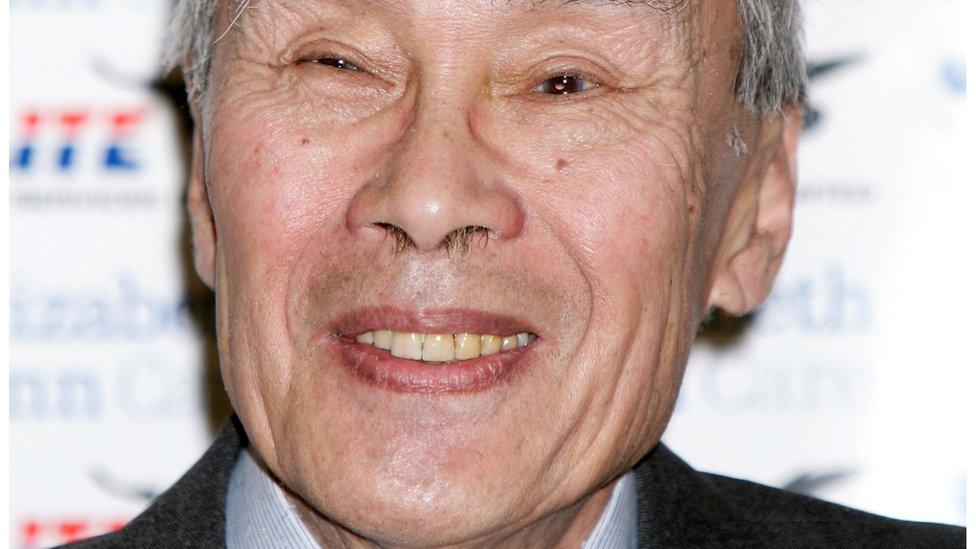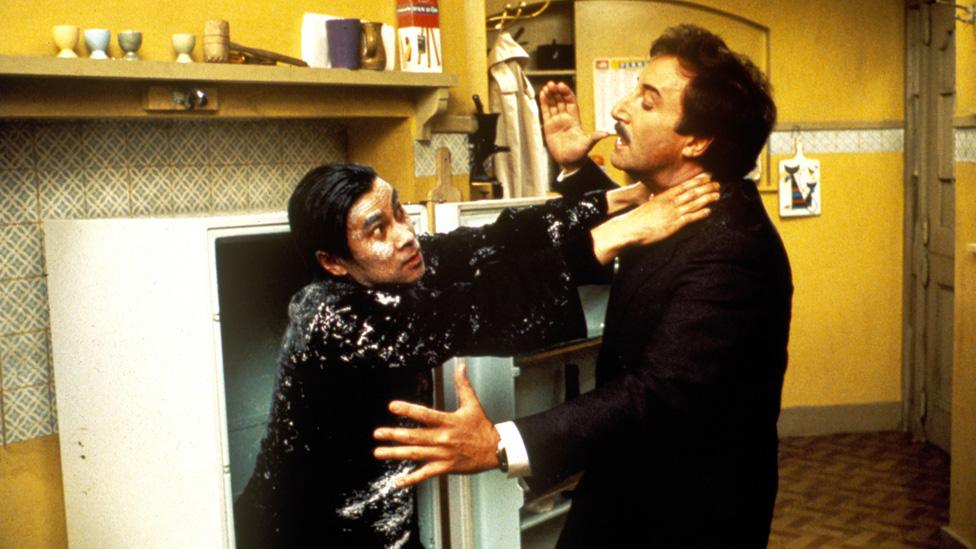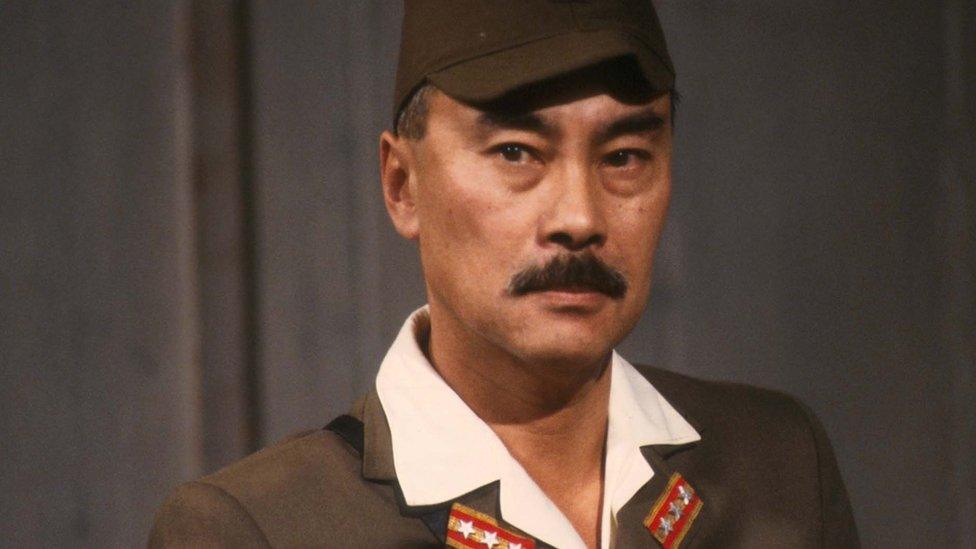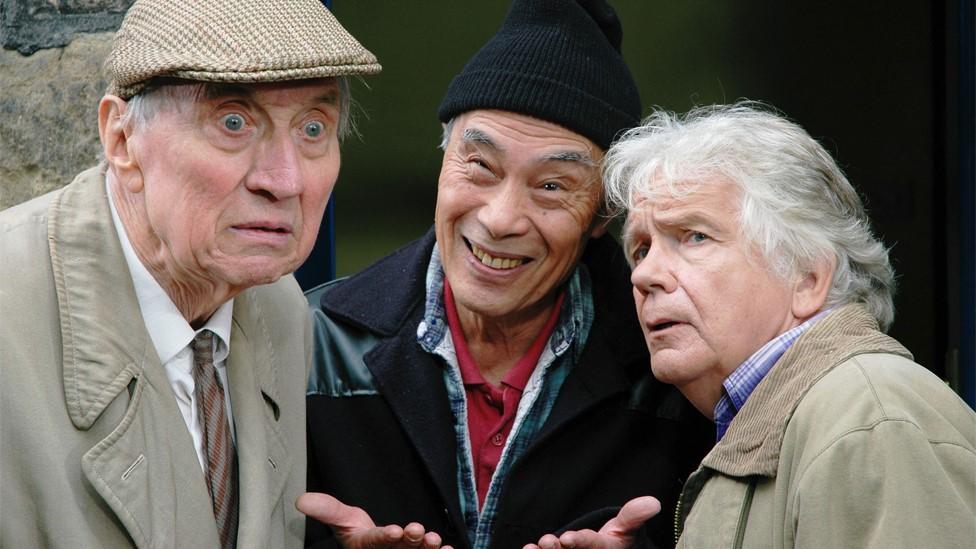Obituary: Burt Kwouk
- Published

Versatile performer
Burt Kwouk was once described as a funnier version of Bruce Lee, yet the majority of the roles he played in a 50-year career were straight ones.
Best known as the karate kicking manservant in the Pink Panther films he was, following his first screen role in 1957, an ever present face on film and television.
Burt Kwouk was born in Manchester on 18 July 1930 because, as he later remarked, "my mother happened to be there".
In fact his parents were on a business trip and shortly after his birth, returned to Shanghai where Burt spent his early years before returning to the UK in 1954.
His first credited role was in McLeary Moves In, a thriller series based on the Morris West novel and broadcast by ABC television in 1957.
Ah Cato
A year later he made his first major film appearance in The Inn of the Sixth Happiness, the true story of the English missionary to China Gladys Aylward.
Kwouk played Lee, the leader of a prison revolt who helps Aylward get a party of children to safely though Japanese lines.
He was one of the few genuinely Oriental actors to play a major role in the film with many of the other, ostensibly Chinese characters, being played by a European cast.
With British TV thrillers of the '60s and '70s seemingly unable to function without the obligatory oriental villain, Kwouk was rarely out of work.

His master's servant in The Pink Panther series
In 1964 he made his first appearance as Cato, Inspector Clouseau's manservant, in the second of the Pink Panther films A Shot In The Dark.
In what became a running gag through the series Cato, a martial arts expert, was required to keep the Inspector on his guard by attacking him "whenever and wherever I least expect it".
In the same year he made the first of three appearances in the James Bond films with the part of Mr Ling, an associate of Goldfinger, in the film of the same name.
He appeared in two more Bond films in 1967 - the David Niven spoof Casino Royale and You Only Live Twice with Sean Connery.
He reprised his role of Cato in The Return of the Pink Panther in 1975, The Pink Panther Strikes Again in 1976 and in The Revenge Of The Pink Panther two years later.

Prison commandant in Tenko
He was also the narrator in the English version of the Japanese TV series The Water Margin, which ran in the UK in the late '70s and gained cult status.
There were two more appearances in Pink Panther films in the 1980s but, following the death of Peter Sellers, the series had run out of steam and was critically panned.
The BBC series Tenko, gave Kwouk his first major television drama role as Yamauchi, the commandant of a women's prisoner of war camp set up in Singapore following the Japanese invasion.
He handled the difficult role well, portraying a man who was not essentially evil, but who was a product of the military machine unable to show compassion to a defeated enemy.
A total of 30 one-hour episodes were produced between 1981 and 1984 with the majority of the series filmed in Dorset due to budgetary constraints.
Proud Yorkshireman
In 1993 he made his last appearance as Cato in The Son Of The Pink Panther but as before, the absence of Peter Sellers proved too great and the film flopped.
He hosted E4's spoof Japanese TV gameshow Banzai in 2001, the highlight being Kwouk's "Confucious say..." style monologues.
It was ironic that, as one of the few British East Asian actors, he was caught up in the controversy surrounding the Channel 4 show The Missing Chink, in which he took a guest role.
Produced as an ironic comment on the relative unobtrusiveness of the Chinese community in Britain, it was attacked by some as "blatantly racist" mainly on account of the provocative title.

Last of the Summer Wine
He continued to play character roles in film and TV before joining the cast of the long-running BBC sitcom Last Of The Summer Wine in 2003.
His character, a Chinese washing machine repair man improbably named Entwistle, replaced the Compo character after the death of Bill Owen.
As one of the first British-Chinese actors there was never a shortage of parts and he seemed unconcerned about the dangers of being stereotyped.
He was yet another graduate of the school of great British character actors, with the ability to take a variety of roles ranging from slapstick comedy to strong drama.